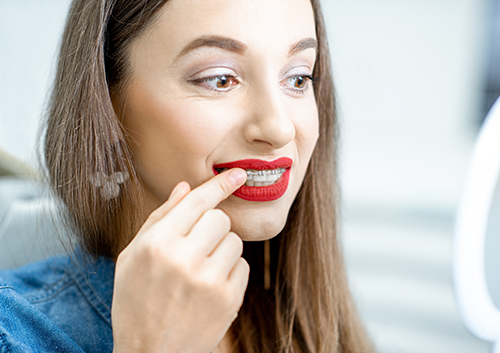September 2nd, 2020

It's the end of summer, and fall is just around the corner. Soon the temperatures will cool down, the leaves will start to change, and Dr. Christopher West and our team at Family Orthodontics in Jupiter, FL are sure that you’ll soon be thinking about Halloween costumes and Thanksgiving plans in no time. But wait! First, we want to know about your favorite parts of the summer! Did you go on a wonderful family trip? Did you pick up a new hobby? Did you try to spend as much time outside and in the sun as possible?
Share your favorite memories, stories, or photos with us by leaving a comment below or on our Facebook page.
August 19th, 2020

It’s not unusual for a patient to be unaware of the range of services that orthodontists can provide for their patients. Knowing which services Dr. Christopher West and our team perform can help you better understand your options and why we might select a particular method of treatment.
Both orthodontists and dentists care about good oral health, but they approach treatment in differing ways. You know that dentists clean teeth and treat gum disease, tooth decay, toothaches, and other oral health problems.
But what does your orthodontist do besides help straighten teeth with the help of braces? Orthodontists are commonly known to help fix or realign crooked teeth. Many of the patients at Family Orthodontics in Jupiter, FL come in for appointments that relate to their braces.
Dr. Christopher West and our team recommend that children be seen around the age of seven to evaluate their potential orthodontic needs. Common problems may include overcrowding of teeth, large gaps or spaces, and overbites or underbites, among other things.
In order to address these common problems, we offer several methods of treatment besides standard braces and retainers:
- Space maintainers can be used to fill the spaces left by missing baby teeth so other teeth don’t shift and occupy the adult tooth’s location.
- Jaw repositioning appliances, sometimes known as splints, are used to reposition the upper and lower jaw bones correctly.
- Lip and cheek bumpers can also be used to avoid having to pull teeth. These bumpers are placed in the mouth so the patient’s lips or cheeks don’t put pressure on specific teeth.
- A more common appliance that orthodontists use is expanders. If your mouth is crowded, expanders will be placed on the curve of the upper and/or lower jaw(s) in order to make room for teeth to be properly aligned.
- As a last resort, an orthodontist may turn to headgear. This is normally provided to slow down the growth of the jaw. It must be worn a number of hours each day.
When you visit our Jupiter, FL office, we will go over these options with you and pick the best course of treatment, depending on the current state of your oral health.
No matter which oral appliances you end up with, Dr. Christopher West and our team will go over all the available options with you to give you a beautiful smile. If you have questions regarding your treatment method, don’t hesitate to call our office and we can provide you with some insight.
Understanding the different options your orthodontist can provide should make matters less confusing if you should need to select a method of treatment.
August 12th, 2020

We all welcome the idea of braces adjustments at our Jupiter, FL office—an adjustment, after all, means you have taken another step on the way to your ideal smile! But sometimes the reality of an adjustment can be a little less welcome—you might have a few days of discomfort as you get used to new or different pressure on your teeth. Luckily, there are some menu options that will help you get through these days in a comfortable and tasty way.
Keep Your Cool
If you are feeling a bit sore after your braces have been tightened, a cool treat might be just the thing. Ice cream is the classic choice, but if you are looking for some healthier options, consider yogurt. It generally has less sugar, while still providing soothing, creamy sweetness. A fruit or vegetable smoothie is always a good (and nutritious) choice. Pudding and gelatin cups? Chilly, delicious, and easy to eat.
Comfort Food
Some of our favorite comfort foods mean literal comfort for newly adjusted braces. Creamy soups, soft pastas and noodles, mashed potatoes, and macaroni and cheese are warm, silky options that don’t require a lot of chewing. Just don’t go too hot or too spicy—that might irritate sensitive gum and mouth tissue.
Breakfast All Day Long
Most of our favorite braces-friendly breakfast foods are delicious any time of day. Eggs scrambled, fried, or in an omelet are easy on your braces and packed with protein. Are you an oatmeal fan? Try some oatmeal with mashed fruit for a more flavorful bowl. And you can’t beat the taste and texture of pillowy pancakes.
The discomfort that follows an adjustment is temporary, but treat your teeth—and yourself—gently over the next day or two. Take over-the-counter medication if needed for pain, brush carefully, and eat a comforting, comfortable diet. Soon you will be back to your normal, braces-friendly menu, and one step further on your way to a beautiful smile!
August 5th, 2020

Although adolescence is a common time to get braces, there’s no reason for adults of any age to have to deal with crooked teeth, overbite, underbite, or other dental issues. In fact, the American Association of Orthodontists notes that demand for orthodontic treatment in adults continues to grow, with adults representing 20% of new patients.
You’re never too old for braces or other orthodontic appliances, but it’s important to consider the following:
- Braces don’t have to be as noticeable as the metal brackets of the past. Many adults opt for ceramic or plastic braces, which are bone-colored or clear, respectively. Another option is a lingual appliance, which attaches to the back side of your teeth. These so-called “invisible” braces are much less noticeable than traditional options.
- By adulthood, bone growth has stopped. This means that certain structural changes can only be achieved by surgery. Although this typically affects people with significant crowding, bite, or jaw problems, Dr. Christopher West can provide an individualized treatment plan that addresses your unique issues.
- Treatment may take a bit longer. The length of orthodontic treatment tends to be slightly longer for adults than adolescents. Exact estimates vary by individual, but the average length of time for adult braces wearers is two years, according to the Harvard Medical School.
- Outcomes are just as good for adults! Many adults worry that it’s too late to treat their orthodontic problems. However, treatment satisfaction tends to be very high, which is a testament to how effective braces can be in middle-aged and older adults.
















